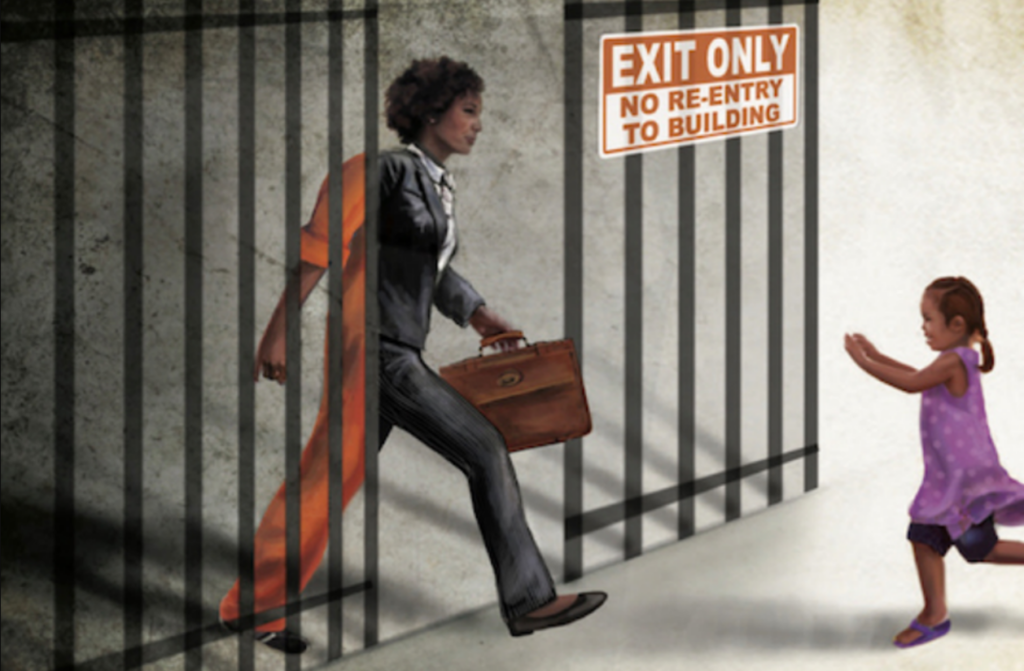Prisons and jails are filled with women whose lives have been devastated by trauma, abuse, and addiction. These statistics surrounding incarcerated women are alarming and reveal the complex challenges they face. This situation highlights the critical need for comprehensive reentry programs. In 2022, the number of women incarcerated in jails and prisons across the United States reached 181,000, surpassing the growth of male incarceration. Unfortunately, little is being done to support these women during their transition back into society or to provide services while they are incarcerated. Addressing these obstacles is crucial in reducing recidivism, particularly given the unique challenges faces by this population. Data show that 90% of women in the criminal justice system have faced childhood trauma, 70% report having experienced intimate partner violence, 69%–72% have a substance use disorder, and 66% have a mental health disorder diagnosis.
Most reentry programs cater to men, which means that women are not receiving gender-responsive treatment that addresses their specific needs when transitioning back into their homes, families, and communities. For many incarcerated women, reunification with their children is the greatest challenge during reintegration. Unfortunately, this issue is often overlooked in reentry programs as there isn’t a solid framework to follow. As a result, these women are left to navigate the complex and often punitive family court system on their own.
The situation for women following incarceration is further complicated by their increased likelihood of returning to substance use compared to men. Specifically, women are 5.5% more likely to die from an overdose within two years of their release. Various factors contribute to this concerning statistic, which could be addressed both before and after release. It is important to highlight the myriad challenges faced by these women as they seek employment while grappling with a criminal record. Finding and maintaining a job, which seems like a simple task, presents a significant challenge for many women in reentry and often leads to increased symptoms of mental health disorders and substance use relapse. To add insult to injury, they are likely to earn significantly less than their male counterparts despite often possessing comparable skills and qualifications.
If they are fortunate enough to regain custody of their children, they will be further burdened by the need to factor childcare into both their work schedules and financial planning. Depending on the charges, some women may lose access to state benefits such as SNAP and TANF, which can negatively impact their children and potentially increase family court involvement. If these women participated in a reentry program focused on family reunification, they would gain a better understanding of the system and how to meet its expectations. Such a program would also provide support in finding suitable employment and housing that accommodates their children’s needs.
Women’s reentry programs could also put an emphasis and gender-responsive lens on trauma-informed treatment. As the statistics above showed us, this is tremendously needed, and from the clients I have worked with, it is begged for from the inside. This approach recognizes the interconnectedness of deep-rooted issues and provides tailored interventions to address them. By creating safe and supportive environments, reentry programs empower women to heal, build resilience, and break the cycle of re-offending.
Specifically, trauma-informed care can help women who have experienced intimate partner violence develop coping mechanisms, build self-esteem, and establish healthy relationships. For women with childhood trauma, this approach can help them process past experiences, address emotional dysregulation, and develop healthy attachment styles. Responsive care can help women with substance use disorders access evidence-based treatment, including medication-assisted therapy and counseling, within a supportive and non-judgmental environment. By addressing these underlying issues, women are more likely to reintegrate into the community and lead fulfilling lives.
To ensure that incarcerated women have the support and resources they need to succeed after release, we must take action. Here’s how you can make a difference:
- Donate: Support organizations that provide reentry programs, mental health services, and legal aid to incarcerated women.
- Benevolence Farm is one great example of such an organization. Benevolence Farm is a nonprofit that helps formerly incarcerated women transition back into society by providing employment, sustainable farming, and business training.
- Volunteer: Offer your time to volunteer at a local reentry program or correctional facility.
- Arise Collective- A program that helps women after release through education, reentry support, and community engagement.
- Advocate: Contact your elected officials and urge them to support policies that prioritize women’s reentry and rehabilitation.
- The Fair Chance Act: This federal law prevents employers from asking about criminal history on job applications and limits the use of background checks.
- The Second Chance Act: This federal law funds reentry programs that offer job training, housing help, and substance use treatment.
- Educate: Raise awareness about the challenges faced by incarcerated women and the importance of gender-responsive, trauma-informed care.
Investing in women’s reentry not only helps individuals but also strengthens our communities. Let’s work together to ensure every woman can thrive.

